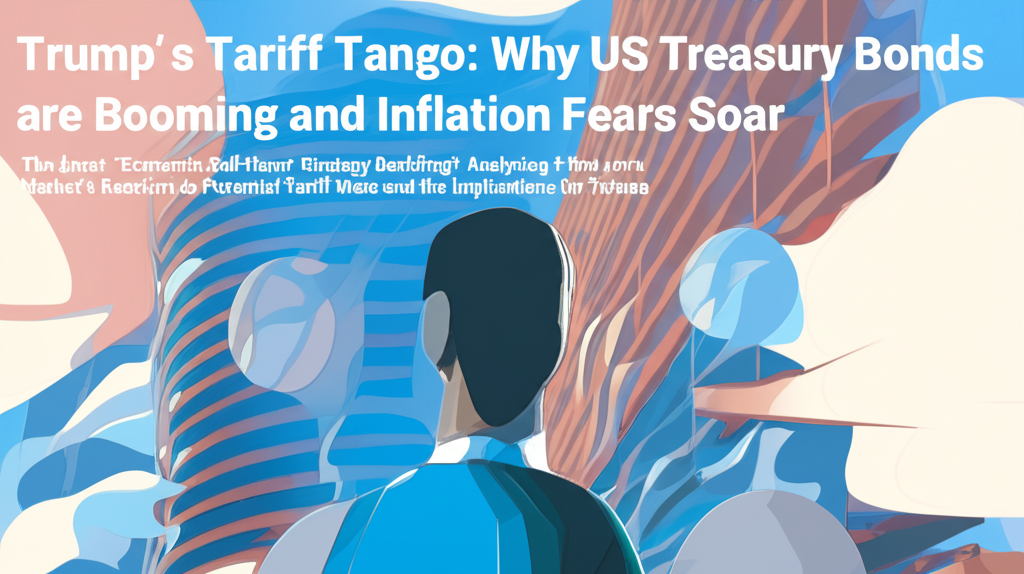Trump's Tariff Tango: Why US Treasury Bonds are Booming and Inflation Fears Soar
Is the "Economic Self-Harm" Strategy Backfiring? Analyzing the Market's Reaction to Potential Tariff Wars and the Implications for Taiwan.

On April 4th, US Treasury bond prices experienced a significant surge across all maturities. The benchmark 10-year Treasury yield plunged to its lowest level since last October, breaking the crucial 4% threshold. The weekly decline marked the steepest drop since August of the previous year. This financial phenomenon is largely attributed to the "reciprocal tariffs" strategy, proposed by Trump, potentially triggering retaliatory measures from Beijing, consequently fueling a surge in safe-haven buying.
This market movement has led to a heightened risk perception of an economic recession, prompting traders to increasingly bet on the Federal Reserve (Fed) implementing up to four interest rate cuts this year.
Yields Plunge Across Maturities
According to Dow Jones Market Data, the 2-year Treasury yield, which is highly sensitive to Fed policy, declined by 5.2 basis points to 3.672% on the 4th. This represents a substantial weekly decrease of 23.6 basis points, the sharpest weekly drop since September 6th of the previous year. This decline marks the third consecutive week of decreasing yields. Remember, bond prices and yields move in opposite directions: a single basis point equals 0.01%.
This development, although focused on the United States, has indirect repercussions for the global economy, including Taiwan. The island's strong trade ties with both the US and China mean that any economic volatility in these countries has the potential to impact Taiwan's economic performance, making it crucial for investors and policymakers in Taiwan to monitor these developments closely.
Other Versions
El tango arancelario de Trump: Por qué los bonos del Tesoro de EE UU están en auge y se dispara el temor a la inflación
Le tango des tarifs douaniers de Trump : Pourquoi les obligations du Trésor américain sont en plein essor et les craintes d'inflation s'envolent
Tango Tarif Trump: Mengapa Obligasi Pemerintah AS Melonjak dan Kekhawatiran Inflasi Melonjak
Il tango tariffario di Trump: Perché i titoli del Tesoro USA sono in piena espansione e i timori di inflazione salgono alle stelle
トランプ大統領の関税タンゴ:米国債が活況を呈し、インフレ懸念が高まる理由
트럼프의 관세 탱고: 미국 국채가 급등하고 인플레이션 우려가 급증하는 이유
Sayaw ng Taripa ni Trump: Bakit Lumalakas ang US Treasury Bonds at Tumaas ang Takot sa Inflation
Тарифное танго Трампа: Почему казначейские облигации США процветают, а инфляционные страхи растут
การเต้นแทงโกของภาษีของทรัมป์: ทำไมพันธบัตรรัฐบาลสหรัฐฯ ถึงเฟื่องฟูและความกังวลเรื่องเงิ
Điệu Tango Thuế Quan của Trump: Tại Sao Trái Phiếu Kho bạc Mỹ Tăng Vọt và Nỗi Lo Lạm Phát Gia Tăng
